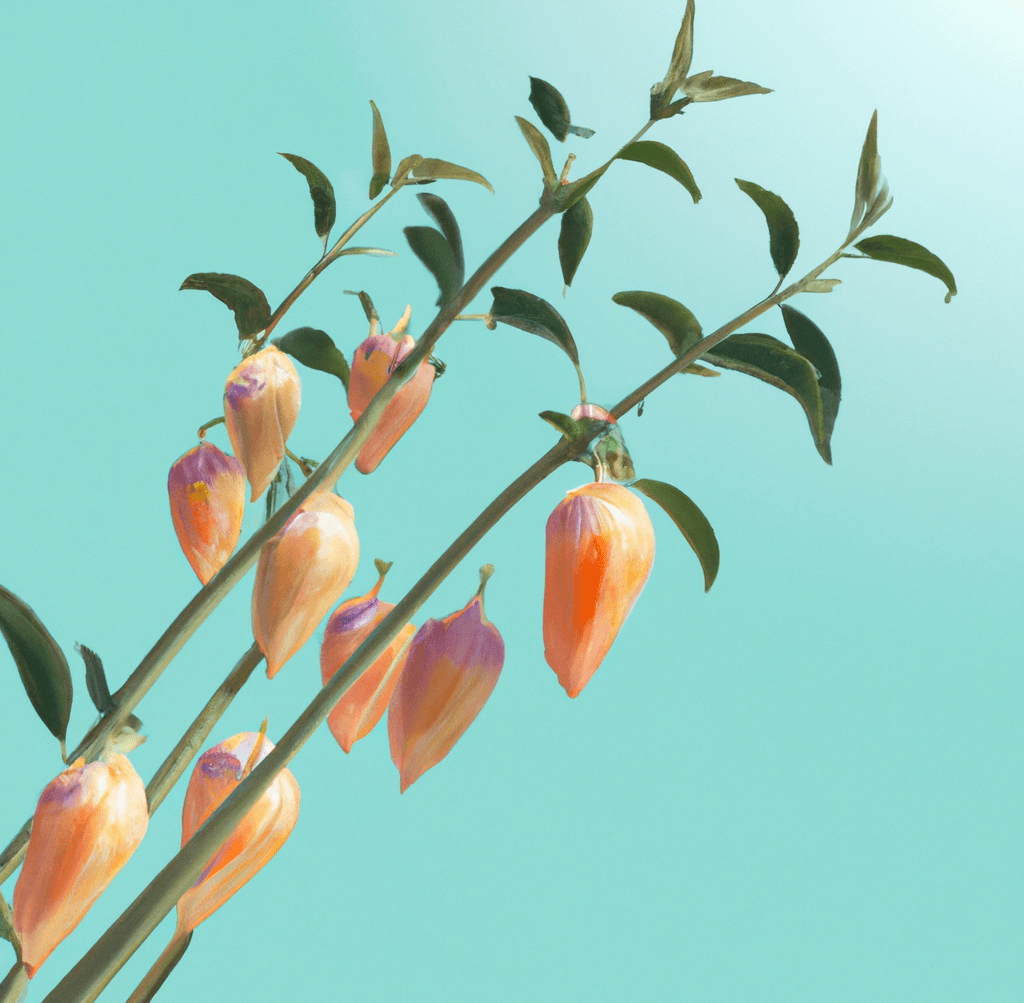
Small business owner,
writer, mental
health advocate
Table of Contents
- Published: December 28, 2022
- 1:42 pm
What is Ashwagandha
Ashwagandha is a powerful root that has anti-inflammatory properties and is used to reduce stress, anxiety, and alleviate depression. As an adaptogen, it helps our bodies adapt to stress, anxiety, and fatigue.
Native to India and North Africa, but can be found in other countries where the climate is warm, ashwagandha grows best where it receives plenty of sunlight.
Used for centuries in India for its medicinal properties, and in ayurvedic medicine, it is often found in supplement form, as an extract, or in tea form.
Benefits of Ashwagandha
Long before it become fashionable on the Instagram-wellness scene, I was taking ashwagandha for my mental health.
In my early 20’s (so, a long time ago), I was deeply troubled by depression and a lack of self-worth. I was so desperate to find ways to increase my energy levels I tried countless holistic remedies, most of which worked in varying works.
Ashwagandha was a root I added to my morning shake and within days I’d noticed a marked increase to my energy levels, increased serotonin, and overall improved sense of joy. Not to mention, I was horny as a horse!
Fast-forward 12 years, and I still take the root intermittently to support my long-term mental health conditions, and give my sex life a boost with a solid improvement in strength, size and endurance. If you hear what I’m saying 😉
Let’s explore the five major benefits in more detail…

1. Improved mental health
Studies show that ashwagandha has a positive effect on mental health conditions, and I’m a living testament to these results.
As an adaptogen, meaning the herb helps the body adapt to stress, anxiety and alleviate fatigue, ashwagandha has been shown to reduce stress and anxiety levels, and can be helpful in treating depression.
It has also been shown to improve cognitive function and memory, meaning it improves our ability to focus, increases productivity and helps give us a sense of satisfaction.
or those who live with mental health conditions and know the debilitating effects of depression and its brain fog, achieving moments of self-satisfaction with our work or daily habits are a critical component to feeling we’re overcoming our depression, even if slowly.
It isn’t recognised as an official remedy or cure to mental health conditions, and isn’t something prescribed by GP’s, but with the endless research outlining the benefits ashwagandha has for the brain, I think it’s a root we should all be consuming to support an overall sense of wellbeing and joy.
2. Reduced anxiety
Although similar to the above point, but we think it’s worth highlighting as a standalone item due to the many people who suffer periods of, or chronic anxiety, but do not suffer with other mental health conditions like depression.
Studies show that ashwagandha can support the reduction of anxiety, or feelings of worry.
Due to it’s adaptogenic properties, it supports the body’s ability to adapt to stressors and anxieties, providing a marked improvement to an overall sense of wellbeing and control within our lives.
Often, anxiety stems from a feeling of unease or lack of control over our lives, and a fear of feeling anxious perpetuates our feelings of anxiety and worry.
The sense of control and wellbeing that ashwagandha creates can calm the nervous system, and alleviate feelings of worry or concern.
3. Increased penis size and sperm production
and increased erectile strength, size and endurance
You’ve heard of the Kama Sutra, right?
Written in Ancient India, sometime between 400 BCE–200 CE in Sanskrit, it’s best known (in the West) for its teachings of sexual positions, lust and desire.
I say ‘in the West‘, because some claim Westerners have overlooked other more important aspects of the Kama Sutra shedding light on Indian culture, politics, religion, and romance (source: Dictionary.com). This would be a typically Western thing to do, of course.
What else isn’t widely known is the list of aphrodisiacs found within the pages of the Kama Sutra, including, you guessed it, ashwagandha.
Another living testament to the studies, the physical affects of ashwagandha on a person’s ‘manhood’ is real. Within days of taking ashwagandha, I am inherently more horny, my erection size increased, and orgasms feel markedly more like a climactic Hollywood finale.
It is thought that ashwagandha increases the nitric oxide within the body, which dilates blood vessels resulting it increased blood flow to the genitals, and thus increased erection counts, size, and strength.
Studies have shown an increased sperm count for people consuming ashwagandha, an expected side effect when you’re experiencing an increased number of erections throughout the day.
4. Improved orgasms in the clitoris
Similar to those with a penis, ashwagandha plays a physiological, and psychological role in improving libido, sexual arousal and achieving an orgasm (not that those with a penis generally struggle with the latter!).
Ashwagandha’s role as an adaptogen reduces stress, improves serotonin levels and overall wellbeing. A primary building block to us feeling at ease, and allowing sexual desire to cultivate naturally within us.
With ashwagandha’s ability to also increase nitric oxide within the body, dilating blood vessels and increasing blood flow to the genital area, this enhances the libido and sexual desire.
Additionally, the increased blood flows enhances arousal within the vaginal area and clitoris, and increases vaginal lubrication. Combined, these factors can contribute to a better sexual experience, including a higher chance of orgasm, and an overall improved orgasm experience.
5. Anti-inflammatory
Finally, and after such an arousing article so far this might sound boring, ashwagandha is also an anti-inflammatory.
It contains compounds, including WA, that may help reduce inflammation in the body l National Library of Medicine (1)
Animal studies have shown that WA may also help reduce levels of inflammatory proteins l National Library of Medicine (2).
How to take it as a shake
It’s important to purchase ashwagandha as pure root or original cuts of the root – you’ll find my only recommended retailer below under Where to purchase ashwagandha.
Fist time consuming ashwagandha
If it’s your first time consuming ashwagandha, it’s important you appreciate its strength physically and mentally.
Start with mixing 1tsp of ashwagandha into your nutribullet and monitor how you feel throughout the day.
If the experience feels potent for you, try reducing it to 0.5tsp, or until you find a quantity that works for you to consume daily, without overwhelming you.
If 1tsp feels fine, try taking it daily, monitoring how you feel each day, and taking a break if you feel your mood progressing into manic joy (seriously, it’s a very real risk).
Regular consumer of ashwagandha
If, like me, you’re well accustomed to ashwagandha, and some of the many other adaptogens that enhance mental clarity, cognitive performance, and sexual experience, I recommend up to 3/4’s of a 1tbsp (flat, not heaped).
Flavouring of ashwagandha
In larger quantities, ashwagandha can overpower the flavour of your shake, making it a little gritty, so include frozen fruits in your shake to sweeten the deal.
I recommend frozen berries, strawberries, and pineapple.
If that’s not enough for you, add 1tsp of honey or a little sweetener.
How to take it as tea
Golden Milk
Often ground and mixed with warm ghee, honey, and milk, it is a soothing bedtime night-cap.
Alternatively mixed with the traditional golden milk of turmeric, ashwagandha, dates, cardamom, vanilla and coconut milk, it is a nutritionally packed drink found in India.
Risks with consumption
While ashwagandha is a safe and effective treatment for mental health conditions, there may be some side effects with human consumption.
Taken in larger quantities, ashwagandha may cause gastrointestinal problems such as nausea, vomiting, or diarrhoea.
If taken too late, or in too higher quantity, it may also cause sleep problems, anxiety, or agitation. Which is why it’s important to start with smaller doses and learn what your body can tolerate.
If you are pregnant or breastfeeding, I recommend consulting with qualified professionals on whether ashwagandha can be consumed – my research does not include risks in this area.
Ashwagandha may also interact with medications, so it is important to speak with your doctor before taking ashwagandha.
Where to purchase Ashwagandha
Ashwagandha can be purchased at health food stores and online. There are a variety of ashwagandha supplements available, as well as ashwagandha extract and ashwagandha tea.
Ashwagandha is also available in capsule form.
That said, do not make the mistakes I’ve made previously.
You could enter ‘ashwagandha supplement’ into Google, Amazon, or ask Alexa, but it doesn’t mean you’ll find a quality supplement that works its magic. And I think we’ve made it clear, ashwagandha can make magic.
After trying various retailers, I only ever purchase my ashwagandha from Just Ingredients. Specialising in providing culinary and botanical ingredients from source, their products are non-irradiated and GMO free.
Available in two forms:
The cuts will inherently retain higher levels of micro minerals; any product that’s gone through a lesser manufacturing process will retain its source benefits. However, the cuts won’t last as long due to their size.
That said, with Just Ingredients the powder remains pure and is full of all that ashwagandha goodness. I often mix purchases between the two for variety.
DISCLAIMER: When purchasing ashwagandha from any retailer, be sure to read the label to make sure you are getting a product that contains the right amount of ashwagandha extract.
Always support small businesses when purchasing
We purchase our ashwagandha supplements from Just Ingredients, a company based in the South East of England who specialise in quality ingredients, imported from source to pass savings onto the customer.
It’s important to us morally that we support small businesses where we can, and more so during these difficult times.
Why we love Just Ingredients
With a focus on high quality goods, and imported from source, we love everything Just Ingredients stands for.
Here’s a snippet of their values as an organisation:
- We are passionate about culinary and botanical ingredients, seeking out the best herbs and spices from the top producers around the world
- We only source the highest standard products and by purchasing from source, we can pass these savings on to our customers
- All our products are non-irradiated and GMO free.
- We have one of the largest ranges of ingredients online, much larger than you will find on the high street or local supermarket
With a 4.7 stat rating on Reviews.io, it’s clear their customers think as highly of them as we do!
Shop with Just Ingredients here
Sources
National Library of Medicine (1) l Logie E, Vanden Berghe W. Tackling Chronic Inflammation with Withanolide Phytochemicals-A Withaferin a Perspective. Antioxidants (Basel). 2020 Nov 10;9(11):1107. doi: 10.3390/antiox9111107. PMID: 33182809; PMCID: PMC7696210.
National Library of Medicine (2) l Logie E, Vanden Berghe W. Tackling Chronic Inflammation with Withanolide Phytochemicals-A Withaferin a Perspective. Antioxidants (Basel). 2020 Nov 10;9(11):1107. doi: 10.3390/antiox9111107. PMID: 33182809; PMCID: PMC7696210.
Affiliate Policy
We only ever recommend products we know offer value to our readers and that we use ourselves.
When recommending these products, we often include affiliate links so that we earn a small commission on sales made, at no expense to you as the reader.
Affiliate commissions are similar to an advertising fee which retailers pay to website owners, and is often the only way website owners can earn money through the content they share. Therefore we hope you can support us by always using our affiliate links if you decide to purchase products after reading our content.
Thank you for always sticking by us.
Did this content help you?
If so, please share it so others can also benefit from it, or other content we share
